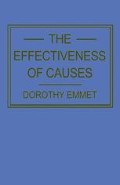Abstract
In the memory which is recall, inheritance is also appropriation which can be put to new use. In habit memory, inheritance comes as entrained repetition of a pattern. Recall memory belongs to our conscious experience, habit memory is part of the psycho-physiological substructure of our experience. I do not know how far down into nature habit memory, or some analogy with it, may go. If it can be extended, I suspect that the notion of a functioning organism would also need to be extended with it. To press this could lead to pan-psychism, which might be avoided if ‘memory’ is divested of any suggestion of conscious awareness, and used for a store of cumulated phylogenetic inheritance on which the individual draws in ontogeny.1 This, it may be claimed, is shown by the way in which the embryo runs through a repertoire of evolutionary forms.
Access this chapter
Tax calculation will be finalised at checkout
Purchases are for personal use only
Preview
Unable to display preview. Download preview PDF.
Notes and References
A. N. Whitehead, Science and the Modern World (Cambridge, 1926 ) p. 112.
A. N. Whitehead, An Enquiry into the Principles of Natural Knowledge (Cambridge, 1919 ) p. 3.
See A. N. Whitehead, ‘Time, Space and the Material’, Proceedings of the Aristotelian Society (1922–3) esp. ch. 8.
A. N. Whitehead, Principles of Natural Knowledge p. 167.
A. R. Sheldrake, A New Science of Life: The Hypothesis of Formative Causation (London, 1981 ).
Barbara Brown, New Mind, New Body (London, 1975) p. 75.
Robert Kirk, ‘From Physical Explicability to Full-Bodied Materialism’, Philosophical Quarterly, vol. 29 (July, 1979 ).
Austin Farrer, The Freedom of the Will (London, 1958) p. 24.
Gilbert Ryle, The Concept of Mind (London, 1949) p. 16.
Author information
Authors and Affiliations
Copyright information
© 1984 Dorothy Emmet
About this chapter
Cite this chapter
Emmet, D. (1984). Immanent Causation in Organisms and in Body-Mind. In: The Effectiveness of Causes. Palgrave Macmillan, London. https://doi.org/10.1007/978-1-349-07165-4_10
Download citation
DOI: https://doi.org/10.1007/978-1-349-07165-4_10
Publisher Name: Palgrave Macmillan, London
Print ISBN: 978-1-349-07167-8
Online ISBN: 978-1-349-07165-4
eBook Packages: Palgrave Religion & Philosophy CollectionPhilosophy and Religion (R0)

